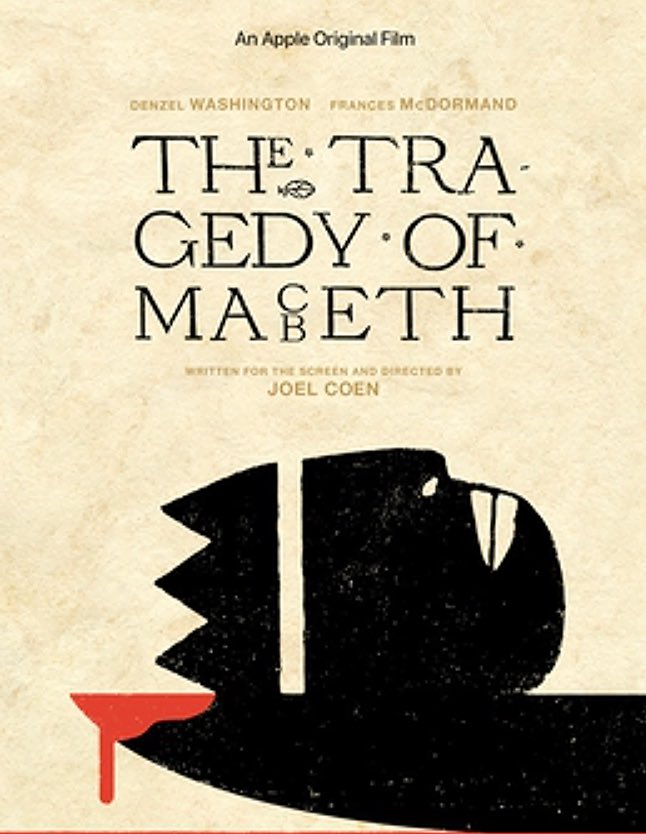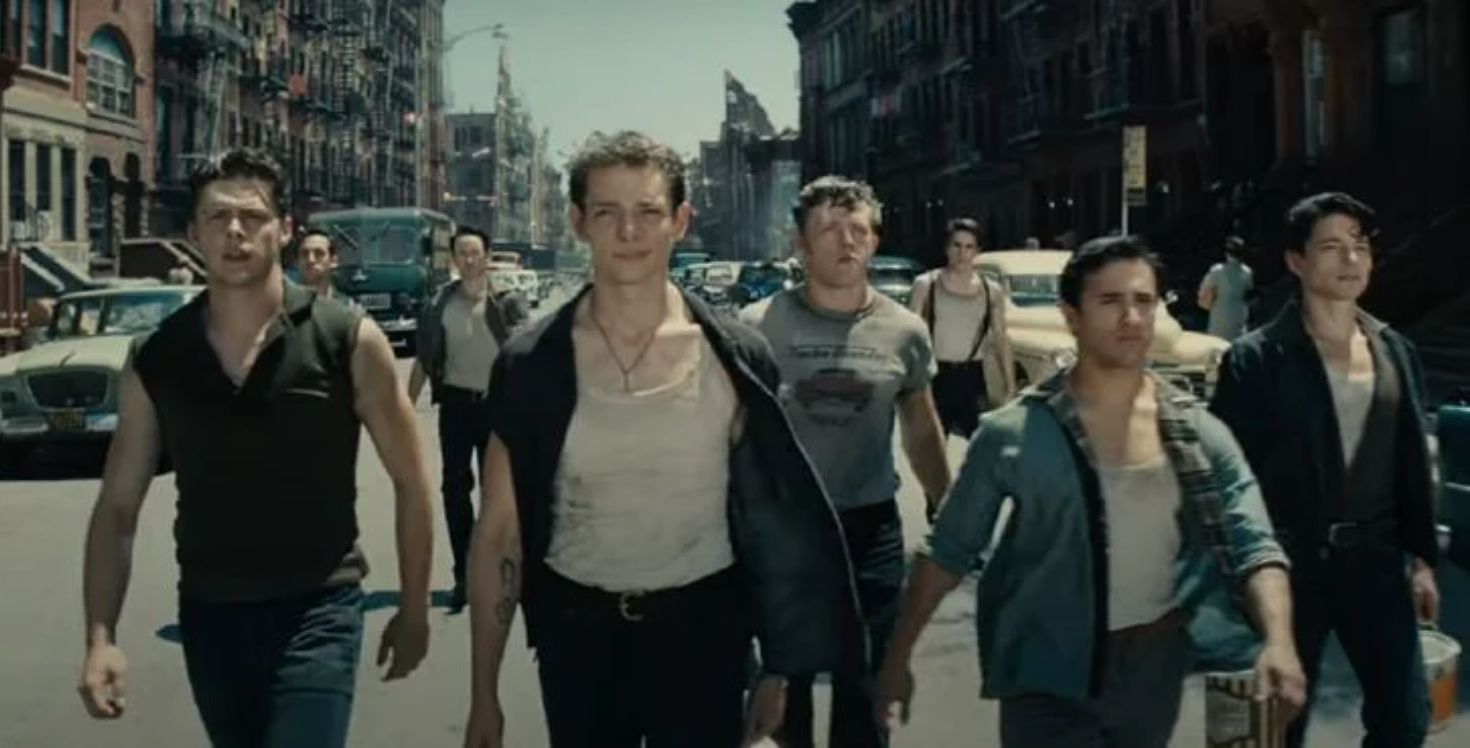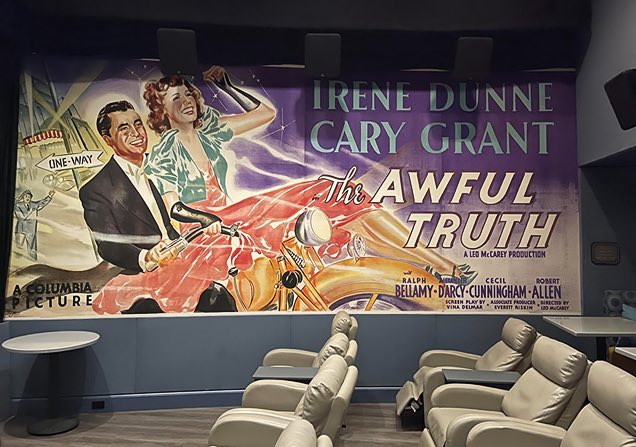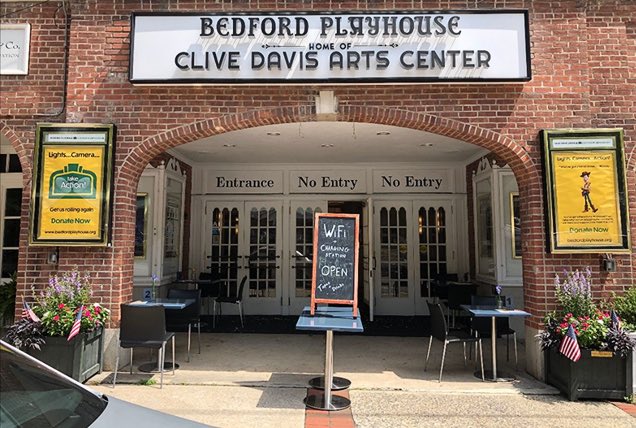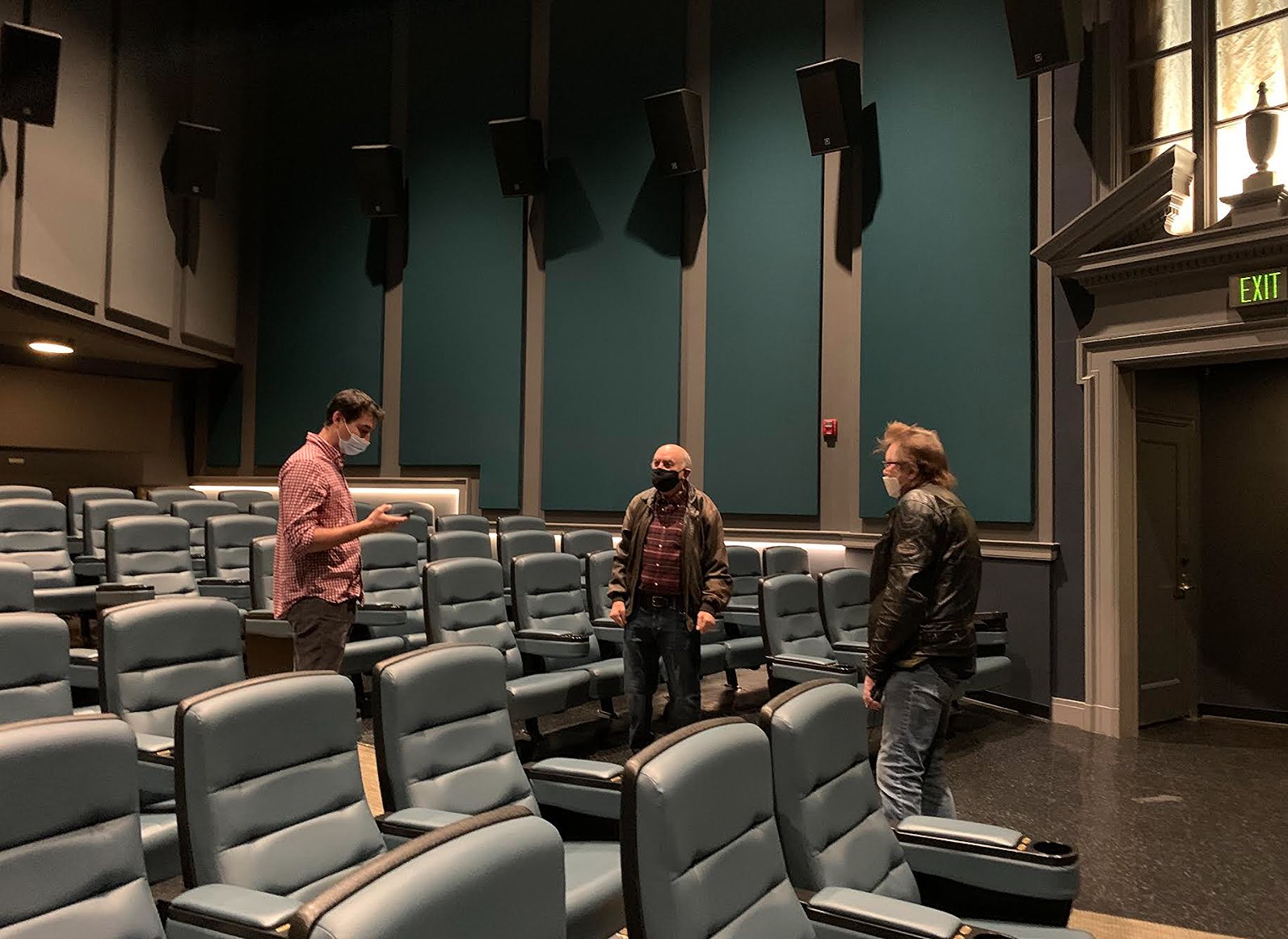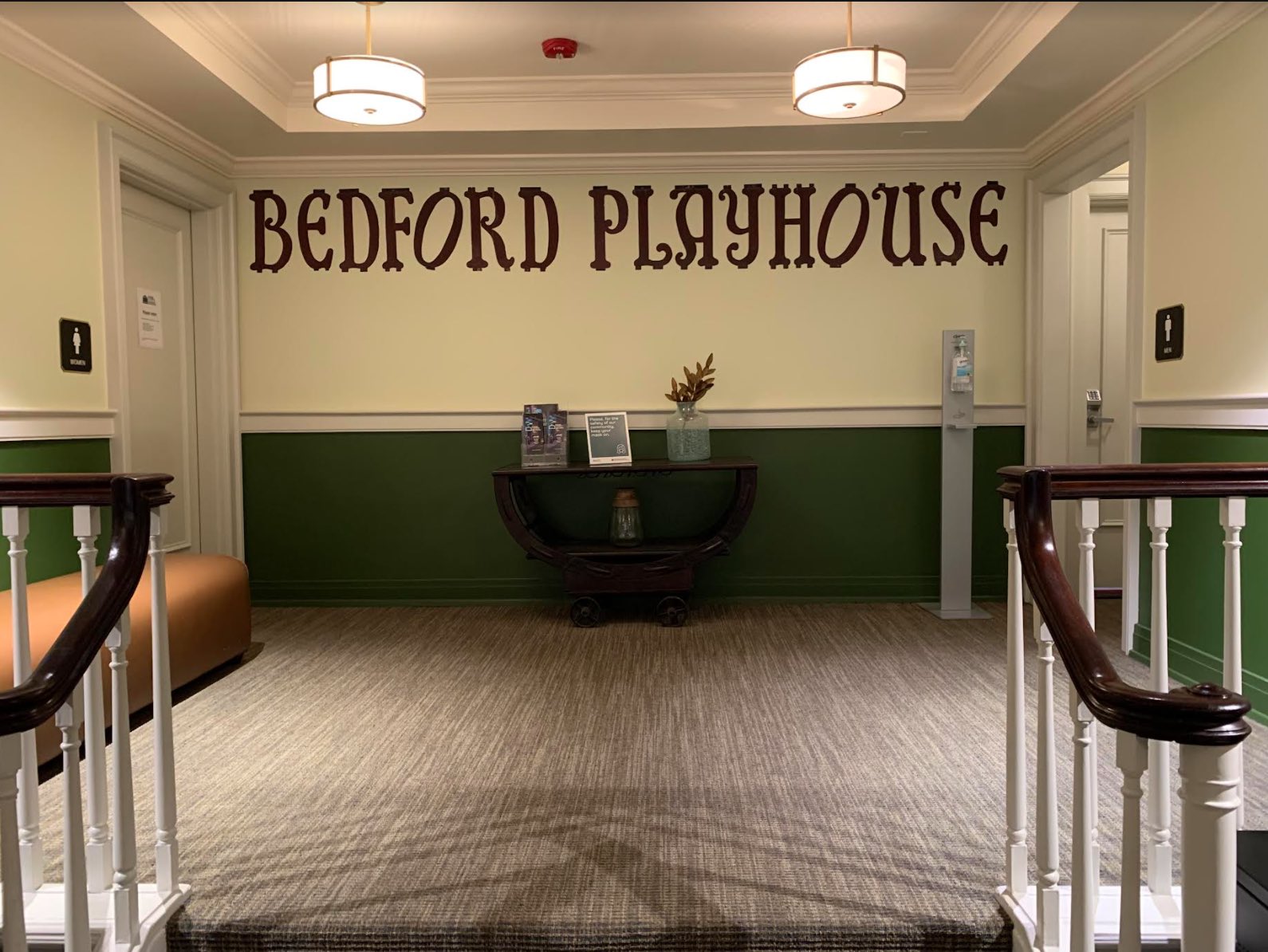The cast of Joel Coen‘s The Tragedy of Macbeth, a play about medieval Scotland, is pretty close to one-third African American. Presentism is par for the course these days, of course, but Coen and wife-producer-costar Frances McDormand seem to have moved beyond your obligatory woke casting requirements.
Which is a switch for Joel, at least compared to remarks he and brother Ethan made during an interview with The Daily Beast‘s Jen Yamato in February ’16 while promoting Hail Ceasar.
Yamato had brought up the issue of diverse casting and multi-ethnic representation. Even though Hail Ceasar was set in the racially illiberal early ’50s, her beef was basically #WhyIsHailCaesarSoWhite? Joel’s attitude was quite resistant and in fact fairly dismissive. Boiled down, his view was “why should I ethnically mix up my cast just for political reasons?”
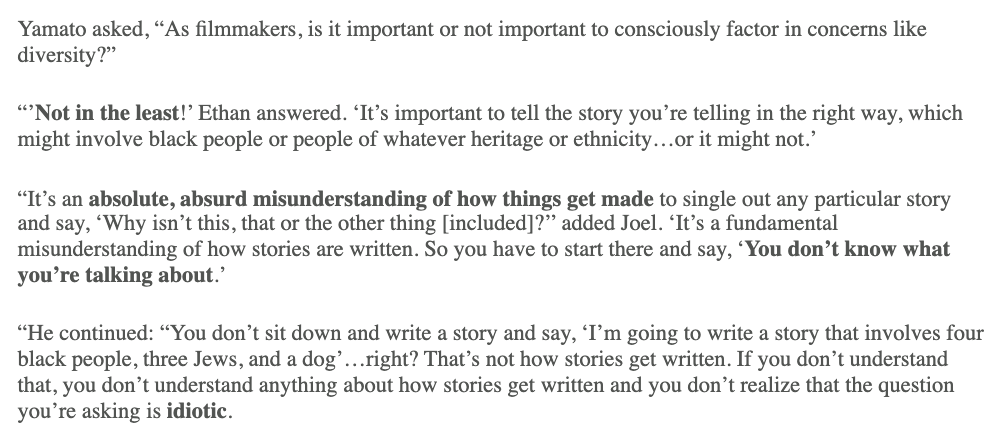
It’s probably fair to say that a different Joel was at the helm when it came to casting The Tragedy of Macbeth. I know nothing, but I suspect that McDormand told him “you can’t really play it that way now, plus there are so many great actors of color out there…you should get in on this.”
Obviously Joel could have ignored the presentism requirement and made Macbeth as a traditional all-paleface play a la Roman Polanski and Orson Welles, and if anyone had complained he could have used the same argument he threw at Yamato. So why didn’t he? Because the Yamato mindset is industry-wide now, and he figured “well, I guess I need to get with the program…why make trouble for myself?…why not just embrace presentism and turn it into a plus?”
